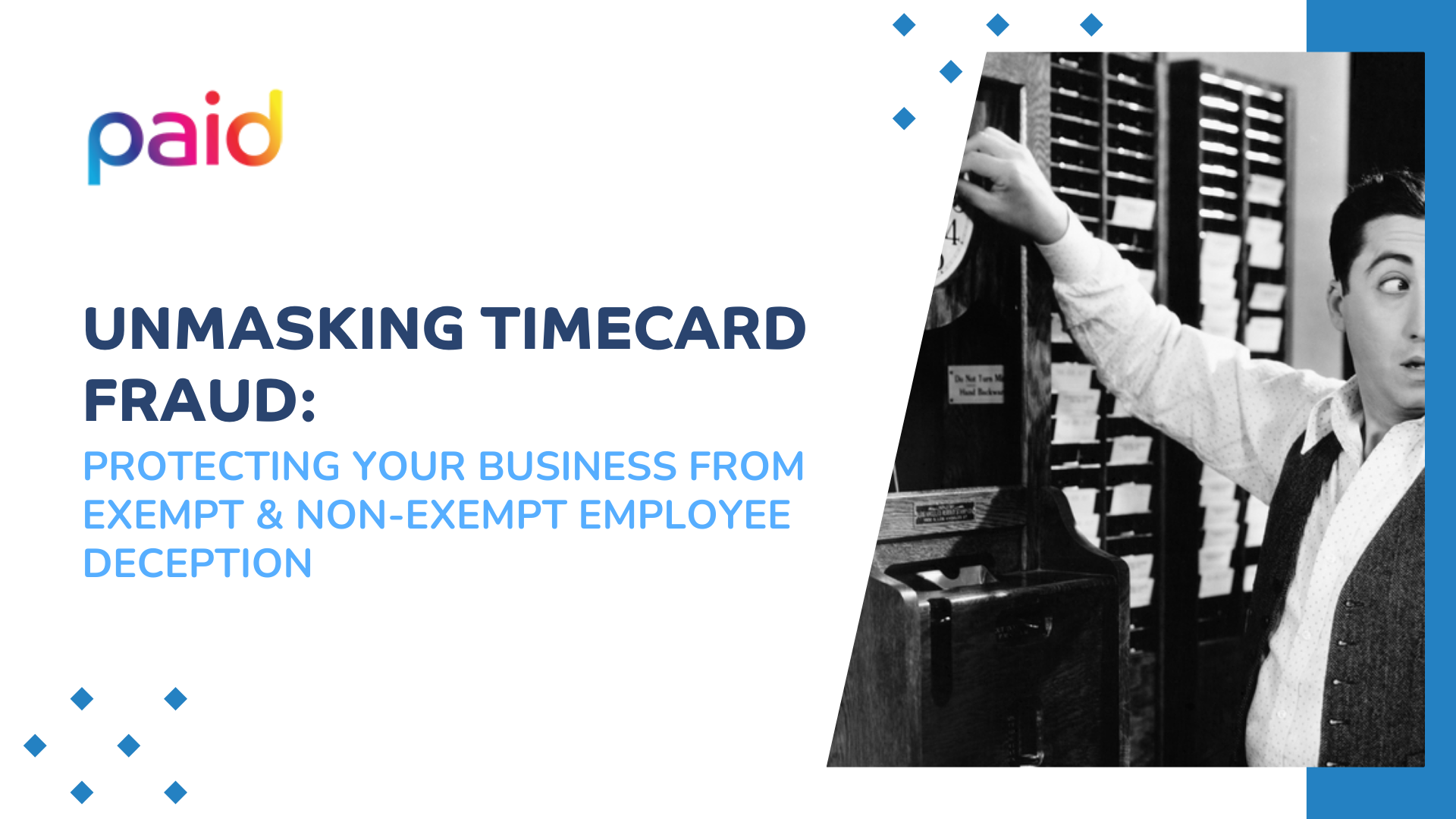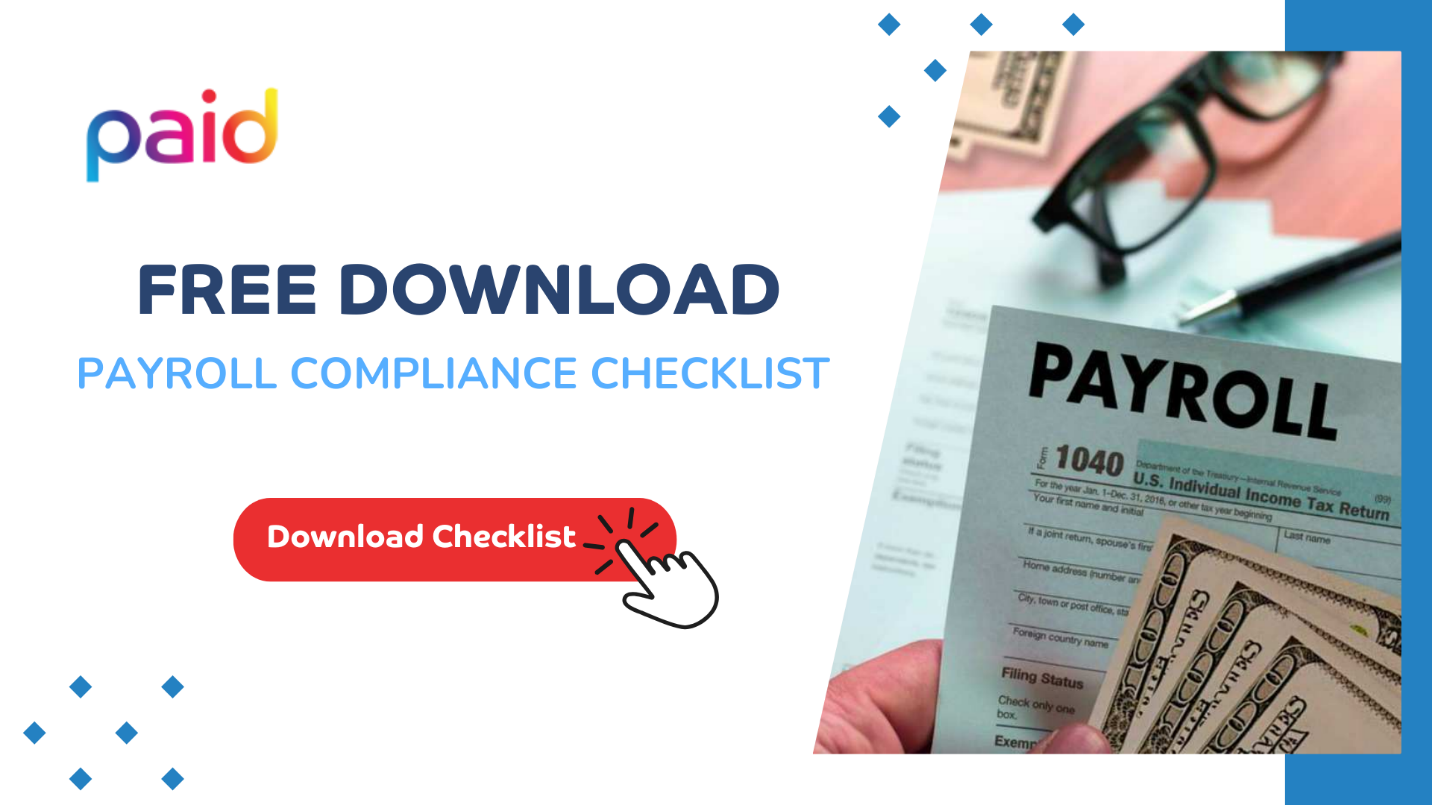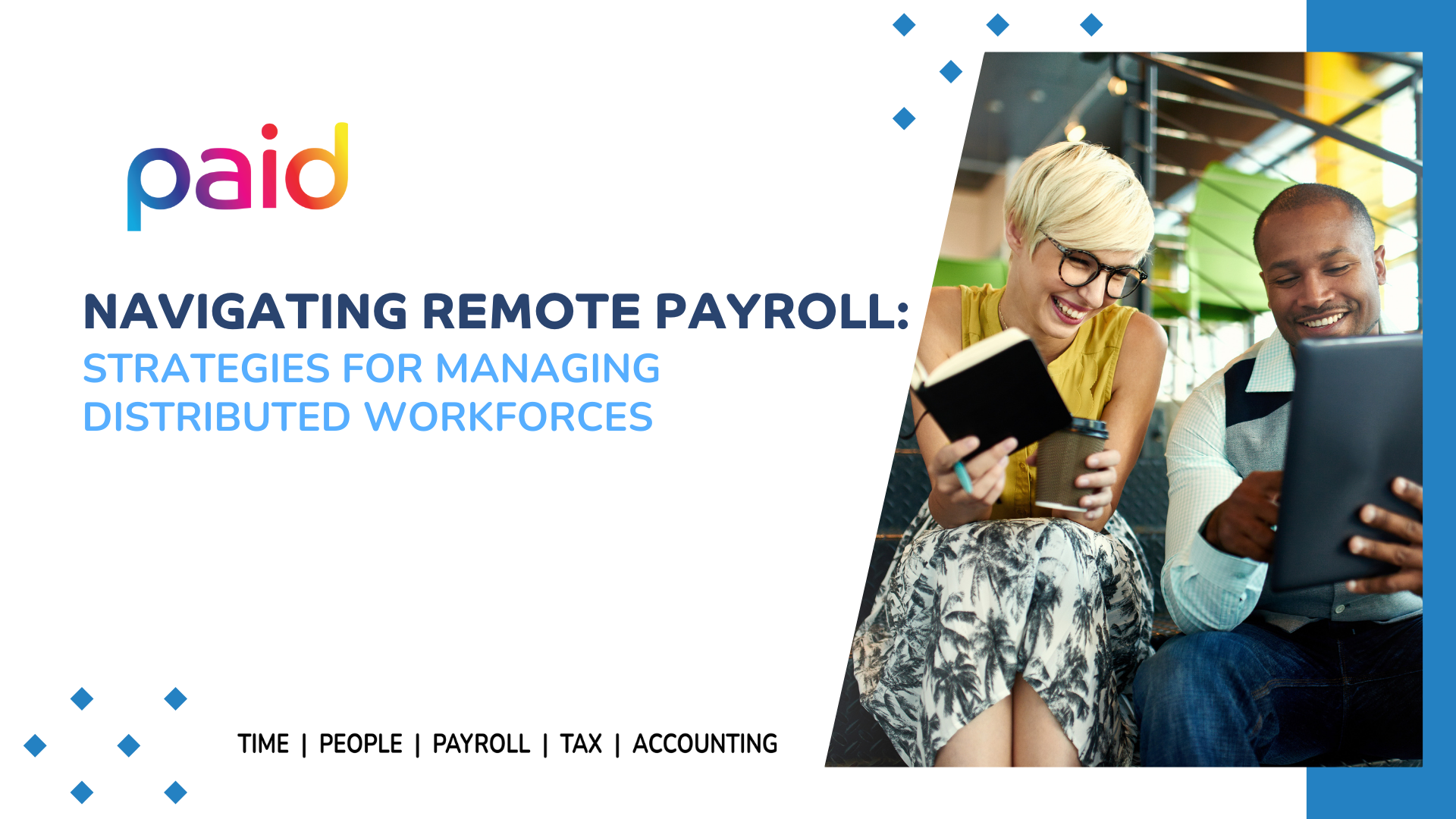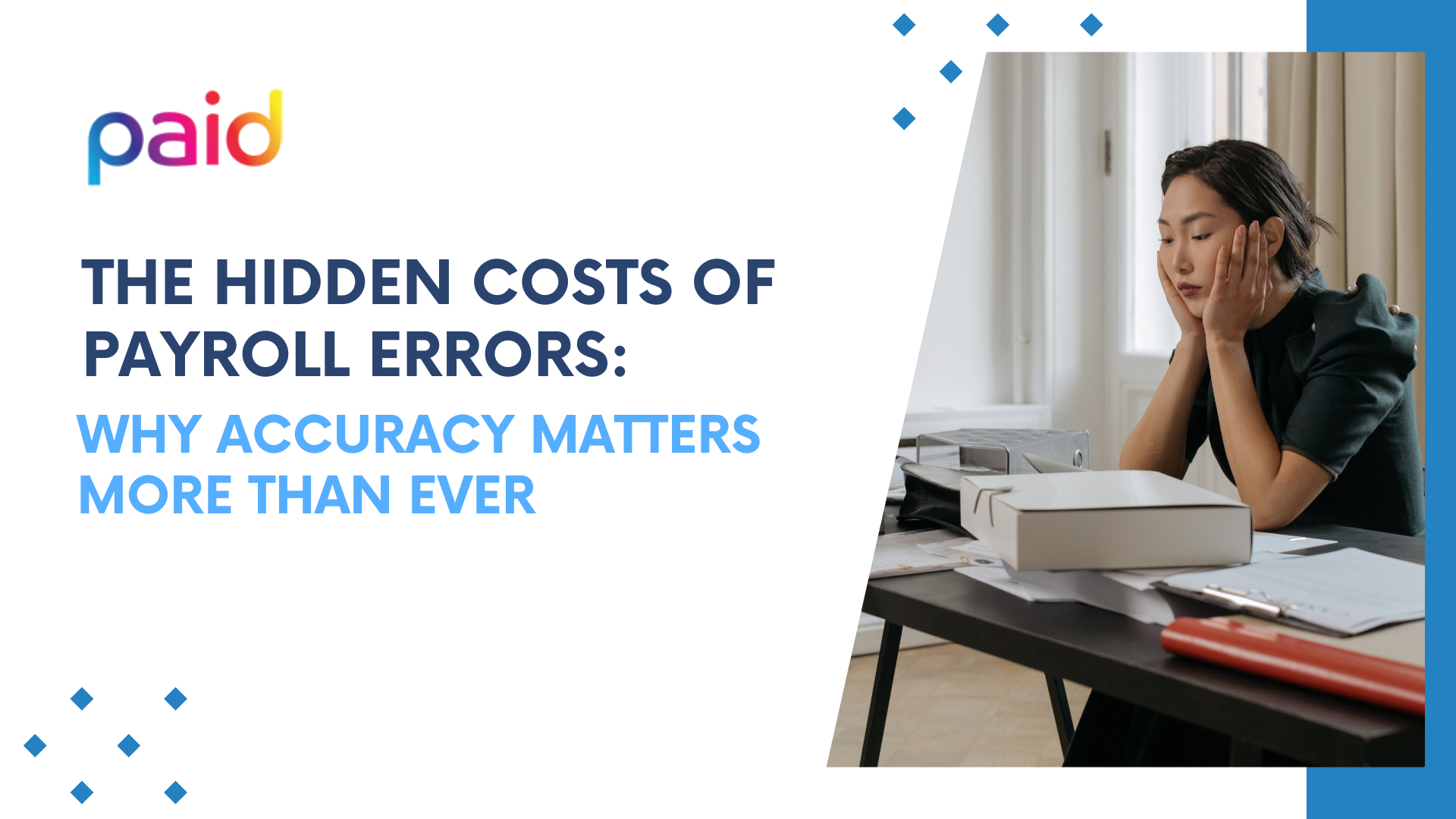Navigating Payroll Compliance and Taxes: Essential Considerations for Businesses
In the intricate world of business operations, few tasks are as critical yet complex as payroll management. It's not just about ensuring employees...
4 min read
Blake LeMoi
:
Apr 15, 2024 10:05:18 AM

In the fast-paced world of business, time is money, quite literally. Accurate timekeeping is the cornerstone of fair compensation and efficient operations. However, the unfortunate reality is that timecard fraud continues to plague organizations, draining resources and eroding trust. As the CEO of a payroll company, I've witnessed firsthand the damaging effects of this deception. In this comprehensive guide, we'll delve deeper into the nuances of timecard fraud, explore specific examples involving exempt and non-exempt employees, and outline actionable strategies to mitigate these risks effectively.
Timecard fraud encompasses a spectrum of deceptive practices aimed at inflating employee hours and, consequently, their paychecks. It's a multifaceted issue that manifests in various forms:
Timecard fraud knows no bounds when it comes to employee classifications. Both exempt and non-exempt employees are susceptible to engaging in deceptive practices:
Combating timecard fraud requires a proactive stance and a multifaceted approach. Here are actionable strategies to fortify your defenses against deceptive practices:
At Paid, we understand the critical importance of accurate timekeeping and the detrimental impact of timecard fraud on businesses. Our cutting-edge payroll and timekeeping solutions are designed to mitigate your risks effectively while streamlining your operations. If you're seeking to enhance your time tracking compliance and safeguard your organization against fraud, don't hesitate to reach out to us for personalized assistance.
Don't let timecard fraud undermine the integrity of your business. By implementing proactive measures and leveraging innovative solutions, you can protect your finances, preserve trust among your workforce, and propel your business toward sustained success. Contact Paid today and take the first step towards securing your organization's future.


Conducting regular audits of your timecard system is essential to ensure accuracy, compliance, and integrity. Use this checklist to thoroughly assess the effectiveness of your timekeeping processes and identify areas for improvement:
Regularly conducting audits using this checklist will help ensure that your timecard system remains reliable, compliant, and secure, providing peace of mind for both employers and employees alike.
Contact us today for your payroll and timecard solutions! Get paid accurately and ensure compliance with ease. Let's optimize your business together.

Receive our Payroll & Compliance Updates straight to your inbox for timely insights and expert advice.

In the intricate world of business operations, few tasks are as critical yet complex as payroll management. It's not just about ensuring employees...

In the ever-evolving landscape of modern work, the traditional office paradigm is undergoing a profound transformation. Remote work has emerged as a...

In the complex landscape of business operations, payroll stands out as a crucial element, intricately interwoven into the financial framework of any...